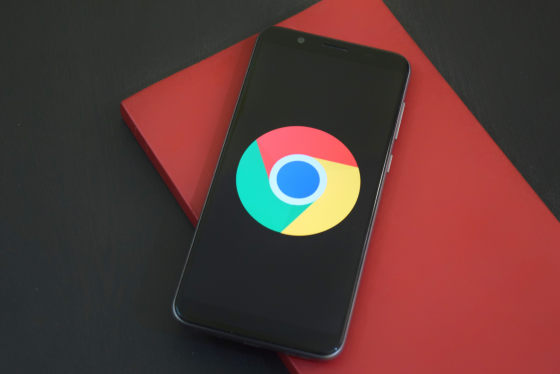Claim that the essence of the new technology 'FLoC' that Google makes 'privacy first' is a tracking technology that violates privacy

by
Google is developing a new advertising mechanism `` FLoC '' without third-party cookies , but FLoC has been pointed out by the Electronic Frontier Foundation as ``the worst'' and is suspected of violating the Antimonopoly Act. I will . Jon von Tetzchner, CEO of Vivaldi, which develops privacy-focused browsers, also spells out the reasons and thoughts about FLoC, saying that ``FLoC is a tracking technology that violates privacy.''
No, Google! Vivaldi users will not get FloC'ed. | Vivaldi Browser
https://vivaldi.com/blog/no-google-vivaldi-users-will-not-get-floced/
◆ FLoC is a tracking technology that violates privacy
Systems using FLoC do not use third-party cookies, but still track and profile users. This means FLoC, which is advertised as 'privacy-preserving,' is a 'privacy-invasive tracking technology,' Tetzchner said.
◆ Does FLoC work with Vivaldi?
From your answer, FLoC doesn't work with Vivaldi.
Whether FLoC is legal under GDPR is still up for debate, and Google only enables FLoC in countries not affected by GDPR. For this reason, at the time of writing the article, it is necessary to communicate with Chrome and Google's servers regarding whether FLoC can operate.
Vivaldi uses the Chromium engine, but makes changes to the engine in various ways. FLoC doesn't work because Vivaldi doesn't allow your browser to communicate with Google servers.
Vivaldi also plans to disable FLoC in any form. ``FLoC does not protect privacy, does not benefit users, and allows users to unknowingly give up their privacy for the benefit of Google,'' Tetzchner said.
Vivaldi Browser: Super convenient. A browser that doesn't bother you with tab management or ads
https://vivaldi.com/en/

What is the reason why FLoC was created?
Historically, many websites have used third-party cookies to keep users logged in. However, third-party cookies are also used to track user behavior, and some browsers have started eliminating third-party cookies as a violation of privacy.
Since then, websites have moved to login methods that do not rely on third-party cookies, and soon all browsers may disable third-party cookies by default.
However, companies such as Google and Facebook that generate a large amount of revenue from advertising have used third-party cookies to track users and display advertisements suitable for each. Therefore, the elimination of third-party cookies has become a major problem for advertising companies. Under such circumstances, FLoC is an alternative to the conventional tracking method devised by Google.
Vivaldi, like many privacy-oriented browsers, blocks third-party trackers regardless of how users are identified, such as cookies, localStorage, or fingerprints.
◆What are third-party cookies? How does it work?

Third-party cookies are one of the technologies used by advertising companies that can build a user's behavioral profile. This behavioral profile allows us to display interest-based advertisements derived from the user's previous behavior, regardless of what website the user is viewing.
Such advertisements are not only used as a way to “sell goods”, but also to change user behavior and control people. In fact, in the 2016 US presidential election
Most of the online ad trackers belong to some big companies like Google and Facebook. These companies use trackers to collect large amounts of information by connecting users to social media accounts, names, friends and relatives, past posts, and more. It is possible to know the personality and private aspects of the user from these data.
Specifically, a third-party cookie is embedded in a website, and a third-party cookie is set with an identifier when a user first loads that website. Then, each time the user visits another website with the same tracker embedded, a cookie is sent to the tracking advertising company to associate that information. By looking at the profile of the user created in this way, you can see what kind of health condition the user has, have political ideas, where they live, etc.
Tetzchner points out that privacy violations are rampant because people have become accustomed to such tracking and advertising, and not having a way to speak up.
“Vivaldi believes it should not be legal for a company to create a profile about you. Profiles should not be created with or without your permission. No way should be done, such as asking, ”said Tetzchner.
◆How does FLoC work?

FLoC, which is built into your browser, monitors your browsing behavior and uses that information to 'determine' your preferences. In other words, FLoC does the profiling work of the user within the browser. And if the browsing behavior is common with other users, assign the user a group id for that behavior.
Not assigning individual IDs to users is one of the reasons Google claims that FLoC does not violate privacy. However, we can see that 'People with group IDs 1324, 98744, and 19287 are buying this medicine.' So, even people who hide their illnesses can still see ads for medicines for their illnesses.
Statistical analysis of such IDs is not possible for small advertising companies with little data to process, but is possible for large companies with many ad slots, namely Google. This gives 'Google a lot of advantages,' Tetzchner said.
◆ FLoC exposes your personal information more than ever
Until now, advertising companies could only see a user's information associated with the website displaying the advertisement. However, in the case of FLoC, the ID is assigned from the user's behavior regardless of whether the advertisement is displayed on the website.
In addition, currently, companies that operate advertising networks can only grasp user information of websites that embed their trackers. This prevents different advertising companies from sharing information. However, if FLoC, which is not limited to advertising networks and tracks at the browser level, different advertising companies can share the same information.
◆FLoC affects society as a whole
Tetzchner also believes that FLoC has a very serious impact on people in environments of persecution, such as sexuality, political views, and religion. For example, if a dictatorship determines that 'opposition has the same FLoC ID,' those with that ID may be exposed through government-controlled websites. matter. The same can be said about religion and sexuality. In this way, beyond privacy, Tetzchner also mentioned putting individuals at risk.
Related Posts:
in Security, Posted by darkhorse_log







